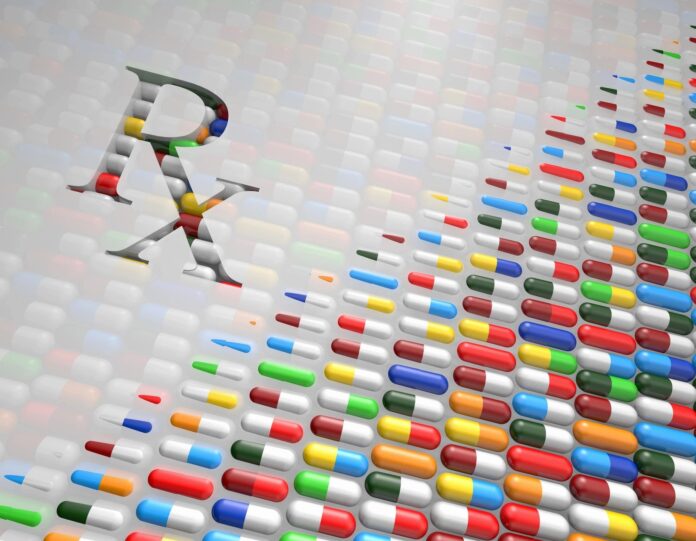President Donald Trump signed four executive orders intended to lower drug prices and boost U.S. production of medicines and medical equipment.
The orders allow Americans to import drugs from pharmacies in Canada and other countries, tie prices paid for drugs under Medicare Part B to the prices paid in other countries, require discounts given to pharmacy benefit managers (PBMs) to be passed on directly to patients, and require community health centers to pass on drug price discounts for insulin and epinephrine to low-income patients.
On drug imports, importation must be “safe” and drugs will have to be approved by the U.S. Food and Drug Administration before being brought into the country. States and pharmacies would import drugs through waivers and would have to show the purchase results in lower cost. The order would allow wholesalers and pharmacies to “reimport” biologic drugs and insulin made in the United States but sold to other countries.
The international pricing index would apply to drugs used under Medicare Part B, such as those administered in a clinical setting. Trump said he will decide by August 24, after meeting with pharmaceutical industry leaders, whether he plans to implement this provision of the executive orders he announced on July 24.
The transfer of discounts given to PBMs, health plan sponsors, or pharmacies would apply to drugs sold to patients under Medicare Part D. One obstacle has been the federal anti-kickback statute which has prevented discounts from being passed on to consumers at point of sale. The new rule would create a “safe harbor” protection.
Discounts on insulin and epinephrine would apply only to low-income patients who have high cost-sharing requirements for the drugs.
Subsidizing Other Countries
Being able to buy less-expensive drugs from other countries is important, and the United States should be able to do that without restriction, says John C. Goodman, president of the Goodman Institute for Public Policy Research and co-publisher of Health Care News.
One consideration is price discrimination: the practice of charging a customer what a seller expects they will pay. Trump has publicly complained U.S. consumers are being forced to overpay to subsidize lower drug prices charged in other countries.
“Price discrimination is a normal thing and encouraged in many markets,” Goodman said. “Wherever there is a price discrimination, buyers being charged a higher price have an incentive to find buyers being charged a lower price to contract with them. To put it differently, buyers that buy at a lower price have an incentive to resell to the buyers that are being gouged. And we can allow both things to happen, but what our current law does is try to protect the industry that wants to price-discriminate.”
Preventing Patent Violations
Goodman says there is a limit to how many inexpensive drugs Canada can purchase to resell to the United States. Canada manufactures generic drugs, but they are generally more expensive than elsewhere.
“What we really ought to have is free trade,” Goodman said. “They [Canada] don’t manufacture any branded drugs, and further, they tell companies like Pfizer that if you don’t sell us your drug at the price we want to pay, we will ignore your patent.”
Violating patents is not free trade, Goodman says.
“We’re already doing a lot of bad things when it comes to drugs,” Goodman said. “We ought to tell Canada to abide by our patents, and we ought to tell Americans they can buy from a Canadian pharmacy and that’s fine.”
Unleashing the Market
The rules address a longstanding complaint in the United States that prescription drug prices are too high, says Christina Herrin, a policy analyst at The Heartland Institute, which co-publishes Health Care News.
“According to the U.S. House Ways and Means Committee , the U.S. consumer pays nearly four times the amount for the same drug when compared to other countries, and in some cases 67 times as much,” Herrin said. “President Trump is right: Americans are getting the short end of the stick, and it is costing us billions, but the solution is to to unleash the market.”
Herrin is not so confident that tying Medicare pharmaceutical prices to the International Pricing Index (IPI), a policy proposed by the Trump administration in 2018 with bipartisan support, is the answer. The policy could have “negative side effects to the production of new, innovative treatments, wait times, and even possible drug shortages,” Herrin said.
Kenneth Artz (kennethcharlesartz@gmx.com) writes from Dallas, Texas.
Internet info:
“Trump Administration Announces Historic Action to Lower Drug Prices for Americans,” U.S. Department of Health and Human Services, July 24, 2020: https://www.hhs.gov/about/news/2020/07/24/trump-administration-announces-historic-action-lower-drug-prices-americans.html





















